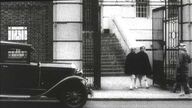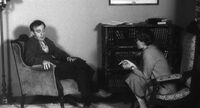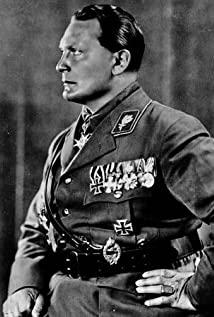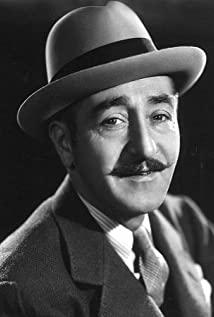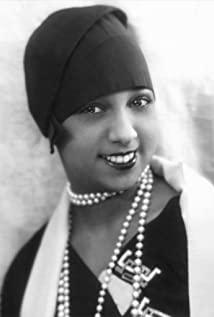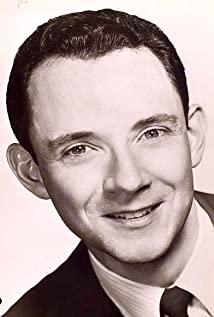Genius.
When talking about pseudo-documentaries, the first thought is the pseudo-documentary horror films I watched in those years, such as "Death Video ([Rec])" "Wait. Then there is "What We Do In Shadows" that I watched the year before, but I was able to use the pseudo-documentary method to make such an imaginative, rich, and absurdly witty movie like Zelig in that era. I think only a few people, including WA, would have such an idea and ability.
Zelig used many realistic shooting techniques, but the slightly absurd story and humorous but ironic lines, the narrative structure of the pseudo-documentary, and the virtual scenes and special effects of the film pushed it towards expressionism. The film uses the narrative method of character interviews + camera recording + narration, it really feels like a serious nonsense!
After watching the film, I actually had some doubts about the theme of the film. The little old man used an exaggerated way to record the life of a legendary Zeilig who had the ability to transform in the 1920s in the United States, but was actually just out of extreme insecurity and self-protection, and wanted to be recognized by others. Just Be yourself? So I re-watched this one hour and ten minute film (with some fast-forwards) from the beginning.
The second time it feels a little clearer. First of all, it is an interesting story as a whole. At the beginning of the film, in the form of interviews + old videos, the image of Zelig is portrayed for the audience from the side—a household name, with the significance of the times and American culture. Representative great people. Then, the narration with a partial British accent describes Zelig's many bizarre stories, which greatly stimulates the viewer's interest in watching the movie - this method gives Zelig the necessary beginning of a good story. In the subsequent narrative, Zelig himself and his story with Eudora Flecher can be described as twists and turns. Even if the story itself has no mapping, it is good enough.
Secondly, from the beginning to the end of the film, the interpretation of the background of the time has not stopped. Prohibition, the boom times, the Great Depression, Nazi Germany... While these backgrounds give the film authenticity, they also use Zelig's story to interpret the phenomena of the era.
Furthermore, what is thought-provoking is the passage about the 1920s in the United States. Zelig's journey from star man to sinner to national hero is absurd, that "That was what the twenties were like. When you think about it, has America changed so much? I don't think so.” The absurd existence grows stubbornly in any age, and civilization and human nature have not undergone any breakthrough evolution due to the leap of technology.
At the end of the film, the warm part of the film is revealed. The female doctor has never left Zelig. It was her great love that changed his doctor, so that he can live like a normal person. Everyone longs for a sense of security. , longing to be cared for and loved. This is highlighted in Zelig's relationship with Eudora Flecher.
View more about Zelig reviews





